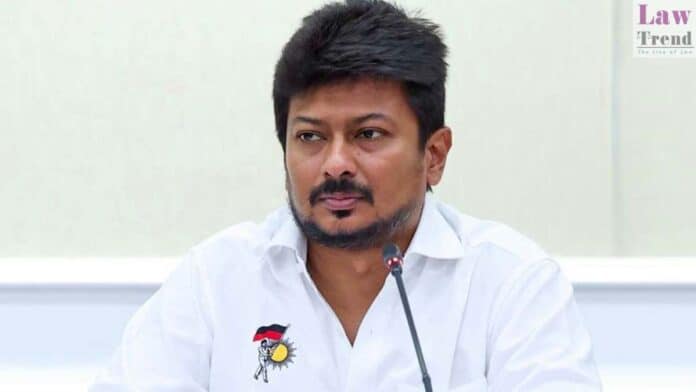In a recent turn of events, the Supreme Court raised questions regarding Tamil Nadu Minister Udhayanidhi Stalin’s approach to the apex court under writ jurisdiction for the clubbing of multiple FIRs related to his controversial remark on “eradicating Sanatan dharma.” The bench, consisting of Justice Sanjiv Khanna and Justice Dipankar Datta, engaged with Stalin’s plea, suggesting that a petition under section 406 of the CrPC (Code of Criminal Procedure) for the transfer of criminal cases might have been a more appropriate legal route than invoking Article 32 of the Constitution, which pertains to writ jurisdiction.
During the proceedings, Justice Datta highlighted the complexities involved, noting that in some of the cases related to Stalin’s remarks, legal cognizance had already been taken, and judicial summons issued. This, he pointed out, places the matters beyond the reach of the Supreme Court under its writ jurisdiction, emphasizing the judiciary’s limited capacity to interfere in ongoing judicial proceedings through this particular legal avenue.
In light of these legal intricacies, the bench offered Stalin the opportunity to amend his plea, taking into account the highlighted “legal issues.” The matter has been scheduled for a hearing in the week commencing May 6, allowing time for the necessary adjustments to the plea.
Representing Stalin, Senior Advocate Abhishek Singhvi elucidated that the remarks made by the Tamil Nadu Minister were not intended as a “political warcry,” but were part of a discourse among a small group of 30 to 40 people. This clarification comes amid concerns over the political and social implications of Stalin’s statement, which has evidently sparked significant legal and public attention.
The court, through Justice Datta, also drew distinctions between the cases cited by Stalin, including those involving journalists and political figures, and his situation. The Justice remarked that the circumstances surrounding media persons could not be directly equated with those of ministers, suggesting a nuanced consideration of the roles and responsibilities associated with public office.
Also Read
Udhayanidhi Stalin, who serves as the Minister of Youth Welfare and Sports in Tamil Nadu, is also a noted film actor and the son of the current Chief Minister and DMK leader MK Stalin. His controversial statement, made at a conference in September 2023, in which he compared Sanatan dharma to viruses like coronavirus, malaria, and dengue, asserting that it should be “eradicated” for being against social justice and equality.




